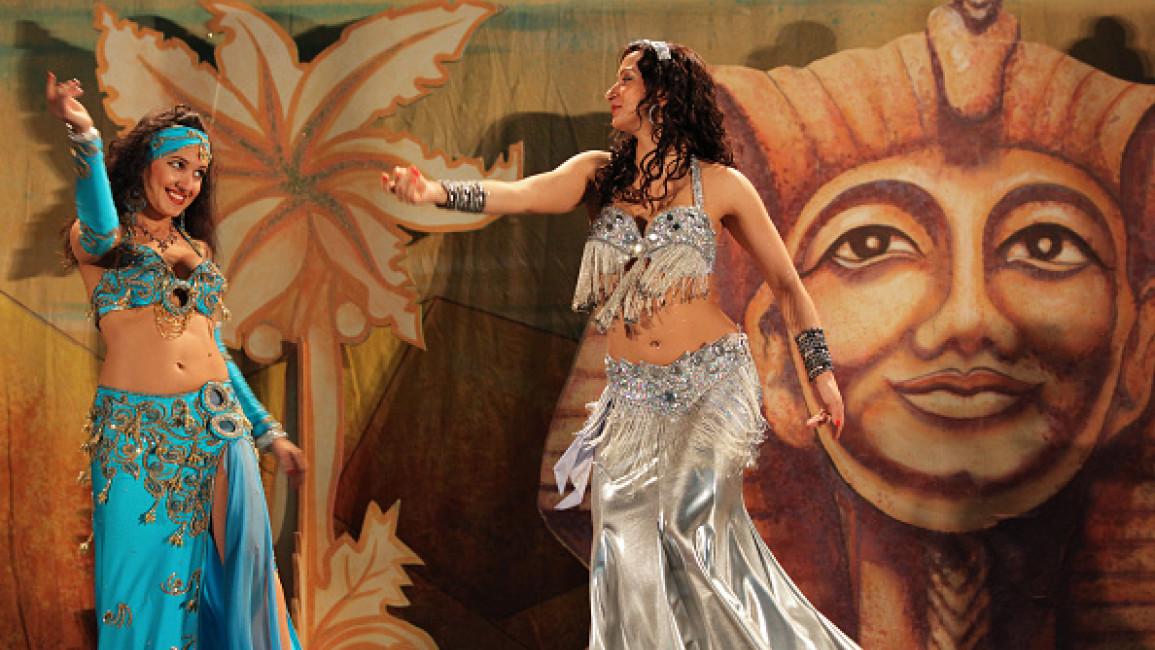'Has dancing become a crime?': Egyptian top court upholds verdict sacking female academic for belly dancing in public
In yet another blow to free expression in Egypt, a top court upheld this week an earlier verdict that had expelled a female university professor from her job over charges of belly-dancing in public and questioning Islamic precepts, Al-Masry Al-Youm newspaper reported.
The supreme administrative court on Monday rejected an appeal filed by author and former English literature professor Mona Prince who worked for Suez university, against a verdict issued by a lower court that fired her from her position, the report added.
Earlier in 2017, Prince stirred up a controversy when she posted a video of herself on her Facebook belly dancing.
The judge said the university's decision to sack Prince had "credible legal justifications."
The court added that "the videos degraded the prestige of the university professor whose mission was to spread and promote values."
"A university professor should not take dance as a slogan, this damages her image in her students' eyes and influences her colleagues' pride," Al-Masry Al-Youm quoted the judge as saying.
Other incidents that were included in the reasons for Prince's dismissal were reportedly she defended Satan before her students, describing him as being unfairly treated, which led her to be convicted of spreading "destructive ideas that violate heavenly beliefs and public order."
The judge said that "free expression was guaranteed as long as the person keeps it inside and does not express it."
According to the court, the freedom of belief is guaranteed as long as it remains confined to the soul without publicly stating what contradicts the heavenly religions and indoctrinates them to students.
In response to the verdict, Prince re-posted on her Facebook a 2017 video showing her belly-dancing on the rooftop of her house, with a caption reading: "Dance is life regardless of the court's decision."
The verdict, meanwhile, set off passionate reactions on social media with many supporting Prince.
Award-winning journalist and former deputy head of Nile TV international wrote on her Facebook page: "Has dancing become a crime? It's a means of expressing oneself and spreading joy…belly dancing is part of our customs and traditions…And she [Prince] posted a video in which she was wearing a jalabiya on her personal page."
Egyptian-British international commentator Nervana Mahmoud, who was among the BBC 100 women of the year for 2013, questioned on Twitter why the Egyptian cinema had been full of belly dancers like the later legendary dancers Naima Akef and Samia Gamal as long as dancing was not allowed.
|
"Be frank and admit you have become [like] Taliban," Mahmoud wrote.
Controversy is not new to Prince. She ran for the presidency in 2012 and 2018. In 2018, she sparked a debate by appearing in a picture with the Israeli ambassador.
Even though Egypt has been in a technical state of normalisation with Israel on the government's level, many Egyptians still detest the Zionist entity.


![Minnesota Tim Walz is working to court Muslim voters. [Getty]](/sites/default/files/styles/image_684x385/public/2169747529.jpeg?h=a5f2f23a&itok=b63Wif2V)




![Israeli officials are considering exiling Yahya Sinwar to Sudan as part of a deal to end the war [Getty]](/sites/default/files/styles/image_212x120/public/1251837582.jpeg?h=127ba027&itok=UTeIubIr)
![Debris near Rafic Hariri International Airport [Getty]](/sites/default/files/styles/image_330x185/public/2176162423.jpeg?h=a5f2f23a&itok=MCSK9mkM)
![An Israeli air strike on Jabalia killed teenage journalist Hassan Hamad [Screengrab/X]](/sites/default/files/styles/image_330x185/public/2024-10/hassan%20hamad1.jpg?h=c12e0b96&itok=Rd_dyCVp)